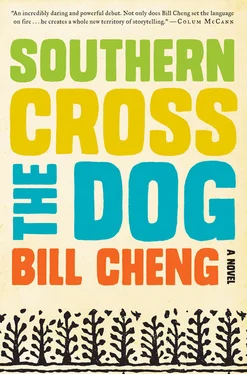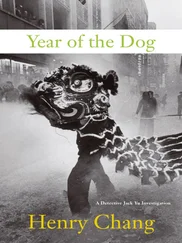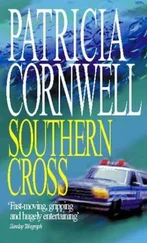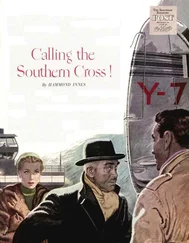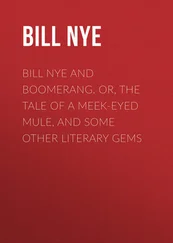
HE WOKE TO THE DRY violent suck of his own breath dropping into his throat. He shot upright. His heart hammered in his chest. He was awake. He’d been dreaming — what about he could not remember, only knew that he could still feel the tightness in his chest. Robert touched his face, his lips. He fingered the cool links of his chain. He set his back against the wall and rested his head against the rough timber. He shut his eyes and tried to steady the jumping in his neck. He took a deep breath, letting it out between his teeth. He opened his eyes and let them adjust to the dark. There were his legs, the roll. There were the shelves against the wall, the sacks of grain, the jars of water. By the doorway, he saw Bossjohn, still asleep, the moonlight blanketed atop him.
The roll beside him was empty. Roan was gone, as was Frankie.
Now was his chance.
He sat up, gathered the slack of his chain into his palms, and very quietly worked his boots onto his feet.
Outside, the air was chill and damp and the ground was jeweled in dew. He was free, but he could not remember the way he had come. Every direction looked the same — thick impenetrable darkness that fed deeper into the swamp. Robert looked up. The moon was a cataract eye, white now and milky. He felt its gaze shoot through him. He was small suddenly, naked under its light. His hummingbird heart smashed itself against his ribs.
Robert flew deep into the swamp. The forest pressed in around him. He fumbled blindly through its walls of hooked and thorny foliage, which snagged his clothes and tore his skin. A fresh bright sting bloomed on his cheek and neck. He lifted up his hands to protect his face, pushing against the dense netting of weeds and vines. Something filtered down from above him. Dry and moldy. He pushed through, felt the ground slope down beneath him.
Here, the moon could not break through the trees. He could not see. He took a step and the ground was soft and yielding. His feet slid apart beneath him, and he stumbled forward trying to catch himself. On his way down something hit him hard across the chest. A rock. A tree root. He tried to stand but he couldn’t. His right leg was deadweight under him. His mind flashed to the carcass at the water. He clasped the devil around his neck. His lungs were on fire. This last time, see me through.
He sat there, panting, the blood damming in his temples.
Without moonlight, he could not tell the foreground from the back. The night lay draped like a wet sheet around his face. Dark stretched for miles in every direction. His ankle was throbbing. He worked off his boot and pressed his fingers into the swollen tissue. He sniffled softly. Was this what it was like? To be under the earth. No sight. The dim whoosh of blood draining in his ears. A lozenge of light hummed inches from his eyes, flaring then dying away. Now another. And another, this time farther out. Slowly he rose, easing his weight onto his good leg.
Lightning bugs filled the space like stars. They pulsed in time, floating up on one side, and drifting down the other, churning slow through the air like a waterwheel. Carefully, he followed their yellow-green burn through the ether, feeling out the space in front of him. He came to where the path narrowed, hemming in against an earthen wall. He put his hand against its face. It was cool and soft, napped with roots. Here the air was ancient, yolky, rotted through with water. He’d been traveling along a dry bed gully.
He squeezed through the narrow and after a few yards, there was sky again. He found a place where the walls were shallow and climbed out. The swamp opened to a large uneven clearing. Ahead of him was a kettle pond, marked off in a square by yellow caution tape. Behind the tape, he saw something catch the light, an eye. He moved toward it. There it was, standing on its mount, a surveyor’s transit. One of the crews had forgotten to take it back to the equipment depot. He reached for it, this alien thing, and touched the cool brass casing.
He looked again. It was not a pond at all, but a large crater. The edges had been dynamited out and support structures installed along the base. The beginnings of the Panther Reservoir.
Something crackled and all at once he felt himself being wrestled down. The ground came hard against his head and he became confused. The night crashed like a wave above him. He wriggled against the earth as blows rained down on his skull and spine and kidneys. His arms popped from their sockets. He cried out. He felt himself being turned over. Something thin and cold slid against his neck.
Voom’urie-eh-ci.
Robert looked up and found those cold hard eyes inches from his face. It was Roan.
You gon’ be very still now.
The knife crawled thinly across his throat.
Is it now? he asked himself. Here was as good as anywhere, just feet from the reservoir — their new shining South. Robert tried to ready himself. It had come. It had finally come. But he couldn’t quiet the panic in his flesh. His eyes could not focus. The blood raged inside him. He could not keep his arms from jumping nor his teeth from chattering. That was the worst of it — to leave with that clatter-clack in his skull. The warmth was on his neck. The knife was gone. Roan too. The universe hurtled away from him. From the corner of his eye, he saw the Dog. Its hind legs lay tucked under its muscular body, foam gathered thick on its muzzle. Robert watched it, his heavy mind slow to turn. He saw it in the moonlight: the svelte sheen of its fur. Every furrow and wrinkle of its coal-black hide. A thick sappy filament unspooled from its chops.
It hurt to breathe, to sift the air through his still-raw throat. I am soul and brain sick and there is no dog. He shut his eyes, and it was true. He was not well. Had not been for a long time. There was too much time that’d passed, too many miles spent in lonesome country. I’m ready, he said. But then she was above him. Frankie. Her hands were crushed against his throat. Her mouth was moving, shaping words. He did not hear them.
The missing Negro had not slowed work at the swamp. When no family came forward, the Yazoo County Sheriff’s Department filed Chatham, Robert Lee, among the other transients of the county. George Burke went every day for two weeks to see what, if anything, the police had found.
The deputy moved the piles of blue and pink forms across his desk. They stacked over three feet high. Too many to keep a count of, the deputy told him. The top button of his shirt was undone and his tie was set crooked. He assured Burke that they were doing everything they could. Burke thanked him and went out into the street, a cold wind threatening to blow off his hat.
He tried to put Chatham out of his mind. Within a week, a new man was hired to fill the vacancy on his crew. Late summer brought fair blue weather, and the crew worked long days, moving tons of yielding earth.
He’d seen men die before in blowouts and explosions. In his career, he’d personally pulled the mangled bodies of six of his crewmen from under fallen rubble. He remembered each and every one — the soft cast of their faces, still and chalky white save for the deep slow rose of blood incarcerated beneath the skin. There were sacrifices. Burke understood that. That at times, the world called for more than was fair or was right. But he’d never met a man who so vigorously sought out those sacrifices, who wanted to make that offering in his own blood and body.
The other members of the crew underestimated Robert Chatham. Chatham was quiet and didn’t socialize with the other men. During lunch, he’d sit alone under a tree, outside the rough noise of cussing and dirty jokes at the chow tables. Every day it was the same meal — a ham sandwich with a single slice of cheese — and he’d chew slow and methodical, staring out from under the shade.
Читать дальше
